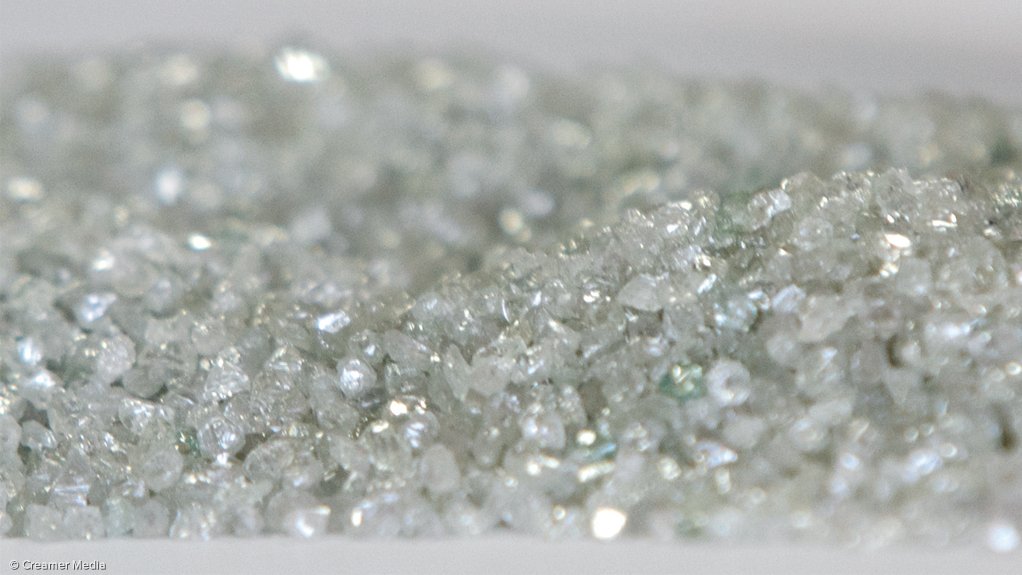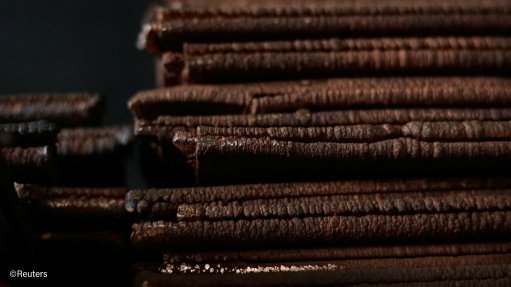Jewellers must say whether diamonds are mined or synthetic – US FTC
WASHINGTON/LONDON – The US Federal Trade Commission, which investigates allegations of deceptive advertising, said on Tuesday that it has sent warning letters to eight companies to insist that they distinguish in advertisements between diamonds that come from mines and those made in laboratories.
The FTC said that it had found instances where the eight companies advertised diamond jewelry "without clearly and conspicuously disclosing that the diamonds are laboratory-created," according to the letter.
The agency declined to identify the recipients of the letters. An unredacted version of one of the letters seen by Reuters identified that recipient as Diamond Foundry, a California company that makes laboratory diamonds.
Diamond Foundry declined to discuss whether the letter would lead to changes in its marketing. "We pride ourselves on being a lab grown diamond producer and this point of differentiation is what our success is built on," CEO Martin Roscheisen said in an emailed statement.
Analysts say increased production of laboratory-grown diamonds will lower the price of the stones.
The Diamond Producers Association (DPA), which represents mining companies like De Beers, Rio Tinto and Alrosa , welcomed the FTC insistence that companies distinguish between diamonds that are mined and those that are made in laboratories.
"The DPA has for several months expressed serious concerns about misleading marketing communication and unsubstantiated eco claims coming from many laboratory grown diamond marketers," said DPA chief executive Jean-Marc Lieberherr.
De Beers, a unit of Anglo American, said it was pleased by the move, adding the two kinds of diamonds were "distinct product categories."
De Beers has responded to pressure from lab diamonds by tearing up its decades-old policy of only selling natural diamonds in jewelry and beginning to sell synthetic stones. It sells the lab-made diamonds for less than rivals to emphasize the difference between what it sees as fun, fashion jewelry and natural diamonds created in the earth and with a high re-sale value.
Since it began selling synthetic gems as jewelry it said the cost of synthetic stones has plunged.
The FTC, in its letters, also asked the companies to review the use of "eco-friendly" or similar terms to describe diamonds made in a laboratory. "It is highly unlikely that they can substantiate all reasonable interpretations of these claims," the FTC said in its release.
The first lab-made diamond was produced in 1955 and larger crystals were made in 1970, but the first synthetic diamonds for purchase were not made until 1970s, according to Dr. James Shigley, research fellow at the Gemological Institute of America.
"These lab grown diamonds are diamonds. They have the same physical and chemical properties. We're not talking about an imitation," he said, noting that many diamonds are sold for grinding or other industrial purposes.
Comments
Press Office
Announcements
What's On
Subscribe to improve your user experience...
Option 1 (equivalent of R125 a month):
Receive a weekly copy of Creamer Media's Engineering News & Mining Weekly magazine
(print copy for those in South Africa and e-magazine for those outside of South Africa)
Receive daily email newsletters
Access to full search results
Access archive of magazine back copies
Access to Projects in Progress
Access to ONE Research Report of your choice in PDF format
Option 2 (equivalent of R375 a month):
All benefits from Option 1
PLUS
Access to Creamer Media's Research Channel Africa for ALL Research Reports, in PDF format, on various industrial and mining sectors
including Electricity; Water; Energy Transition; Hydrogen; Roads, Rail and Ports; Coal; Gold; Platinum; Battery Metals; etc.
Already a subscriber?
Forgotten your password?
Receive weekly copy of Creamer Media's Engineering News & Mining Weekly magazine (print copy for those in South Africa and e-magazine for those outside of South Africa)
➕
Recieve daily email newsletters
➕
Access to full search results
➕
Access archive of magazine back copies
➕
Access to Projects in Progress
➕
Access to ONE Research Report of your choice in PDF format
RESEARCH CHANNEL AFRICA
R4500 (equivalent of R375 a month)
SUBSCRIBEAll benefits from Option 1
➕
Access to Creamer Media's Research Channel Africa for ALL Research Reports on various industrial and mining sectors, in PDF format, including on:
Electricity
➕
Water
➕
Energy Transition
➕
Hydrogen
➕
Roads, Rail and Ports
➕
Coal
➕
Gold
➕
Platinum
➕
Battery Metals
➕
etc.
Receive all benefits from Option 1 or Option 2 delivered to numerous people at your company
➕
Multiple User names and Passwords for simultaneous log-ins
➕
Intranet integration access to all in your organisation





















